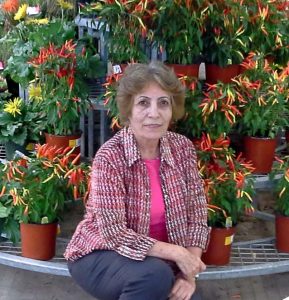 Like most newcomers, Mervi Nishantha Gunatilaka and his wife decided to immigrate to Manitoba because they wanted what was best for their children. “We wanted to move mainly to find better education for our children. University education in my home country is very competitive. There are a limited number of places available. I decided to go to a country that will expose them to a better educational environment with better living conditions,” Mervi said.
Like most newcomers, Mervi Nishantha Gunatilaka and his wife decided to immigrate to Manitoba because they wanted what was best for their children. “We wanted to move mainly to find better education for our children. University education in my home country is very competitive. There are a limited number of places available. I decided to go to a country that will expose them to a better educational environment with better living conditions,” Mervi said.
His concern for his kids’ future pushed him to see their plans through even if it meant leaving his burgeoning career behind. Mervi had just been promoted to Chief Engineer at the Ceylon Electricity Board. This was a culmination of 10 years of hard work. He started as area electrical engineer and worked his way up to project engineer, then finally the chief post. But love for his family won out and with the support of a friend, he applied to the Manitoba Provincial Nominee Program and hoped for the best.
“Settling in a new country is a challenging task. We have to undergo many transitions. Mental anguish happens when we do not get culturally expected results. But if we study, understand, and be better prepared for them, we can face challenges easily.”
Licensing and other concerns
While still in Sri Lanka, Mervi wanted to prepare for their new life as early as he could. Once he received his provincial nomination (which allowed him to apply for a permanent resident visa), he started searching for resources to help him. He came to learn about the Canadian Immigrant Integration Program (CIIP) on the internet and participated in an online orientation. “During the CIIP, I learned about the different institutions in Manitoba. I wrote to Red River College asking for more online orientation. Red River College recommended English Online (EO) and suggested that I follow EO activities. That is how I learned about EO,” Mervi recalls.
Mervi says that he has availed of almost all of EO’s services. “English Online connected me with an e-tutor to improve my English. My English tutor was a Canadian-born, retired gentleman. We did 10 one hour online sessions for 10 weeks. That was very helpful.”
Aside from an e-tutor, Mervi also availed of the services of an e-mentor. “Another great help for me was my e-mentor. He helped me learn about the engineering field in Manitoba. I learned that electrical engineering is a regulated occupation and that I would need a license. This helped me prepare even before I came to Manitoba,” Mervi said.
He also participated in other activities like the virtual coffee chats which he says helped him learn about Canadian life, culture, and settlement. Moreover, it connected him with other services he needed. “During one virtual coffee chat, I came to know about the Immigrant Centre. I registered with them and they provided me with valuable online pre-arrival sessions for many weeks,” Mervi said. To this date, Mervi continues to be an English Online learner, attending workshops, courses, and coffee chats in his free time.
Preparation and perseverance
Mervi and his family landed in Winnipeg on March 10, 2016 and have started to build their new life in the city. The greatest challenge facing him right now is finding work as a professional in his field. Rebuilding a 17-year career is not an easy task, and despite being highly skilled and experienced, he would need to achieve a P.Eng (professional engineer) qualification which will allow him to work as an engineer. But with Mervi’s preparation, perseverance, and openness to learning, he is well on his way toward meeting his goals.
“Settling in a new country is a challenging task. We have to undergo many transitions. Mental anguish happens when we do not get culturally expected results. But if we study, understand, and be better prepared for them, we can face challenges easily,” Mervi said.


 He appeared on Skype exactly at 1 p.m. Winnipeg time for the interview. Meanwhile, it was nearly 9 p.m. in Russia where Nikita lives. Despite the lateness, he was ever gracious and ready to share his experiences.
He appeared on Skype exactly at 1 p.m. Winnipeg time for the interview. Meanwhile, it was nearly 9 p.m. in Russia where Nikita lives. Despite the lateness, he was ever gracious and ready to share his experiences. “Be in the present, there is nothing more important. You should not worry about the past or be anxious about the future. We only have limited time, so don’t waste it on worrying. The best time is the present.“
“Be in the present, there is nothing more important. You should not worry about the past or be anxious about the future. We only have limited time, so don’t waste it on worrying. The best time is the present.“

